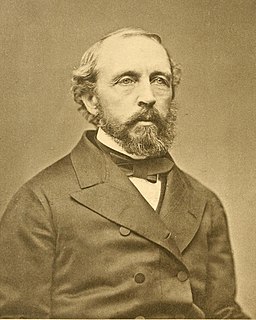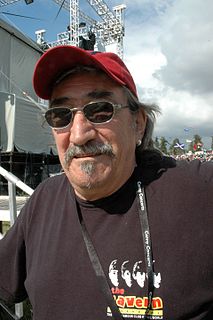A Quote by James Anthony Froude
High original genius is always ridiculed on its first appearance; most of all by those who have won themselves the highest reputation in working on the established lines. Genius only commands recognition when it has created the taste which is to appreciate it.
Related Quotes
Genius is by definition a style of consciousness characterized by the ability to access high energy attractor patterns. It is not a personality characteristic. It is not something that a person has, nor even something that someone is. Those in whom we recognize genius commonly disclaim it. A universal characteristic of genius is humility. The genius has always attributed his insights to some higher influence.
I regret that I must so continually use the word genius, as if that should apply only to a caste as well defined from those below as income-tax payers are from the untaxed. The word genius was very probably invented by a man who had small claims on it himself; greater men would have understood better what to be a genius really was, and probably they would have come to see that the word could be applied to most people. Goethe said that perhaps only a genius is able to understand a genius.
Genius is its own reward; for the best that one is, one must necessarily be for oneself. . . . Further, genius consists in the working of the free intellect., and as a consequence the productions of genius serve no useful purpose. The work of genius may be music, philosophy, painting, or poetry; it is nothing for use or profit. To be useless and unprofitable is one of the characteristics of genius; it is their patent of nobility.
Genius, without work, is certainly a dumb oracle, and it is unquestionably true that the men of the highest genius have invariably been found to be amongst the most plodding, hard-working, and intent men -- their chief characteristic apparently consisting simply in their power of laboring more intensely and effectively than others.
The best minds come from the most unexpected faces and places. There is no image for intelligence or genius. Genius is something that cannot be seen. It cannot be produced or manufactured. It is something that even the true genius thinks is unattainable. The genius recognizes he’s just a small pea in a sea of infinite atoms. Knowledge is as infinite as the universe. The man who claims to know all, only reveals to all that he really knows nothing.
Either I'm a genius or I'm mad, which is it? "No," I said, "I can't be mad because nobody's put me away; therefore I'm a genius." Genius is a form of madness and we're all that way. But I used to be coy about it, like me guitar playing. But if there's such a thing as genius - I am one. And if there isn't, I don't care.
Nothing is so much coveted by a young man as the reputation of being a genius; and many seem to feel that the want of patience for laborious application and deep research is such a mark of genius as cannot be mistaken: while a real genius, like Sir Isaac Newton, with great modesty says, that the great and only difference between his mind and the minds of others consisted solely in his having more patience.






































